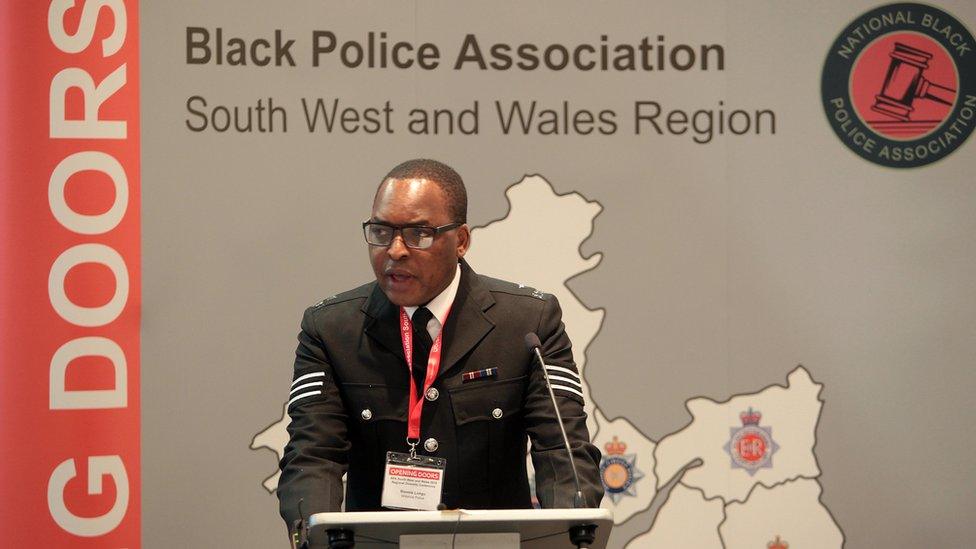BAME officers network 'makes us feel less alone'
- Published
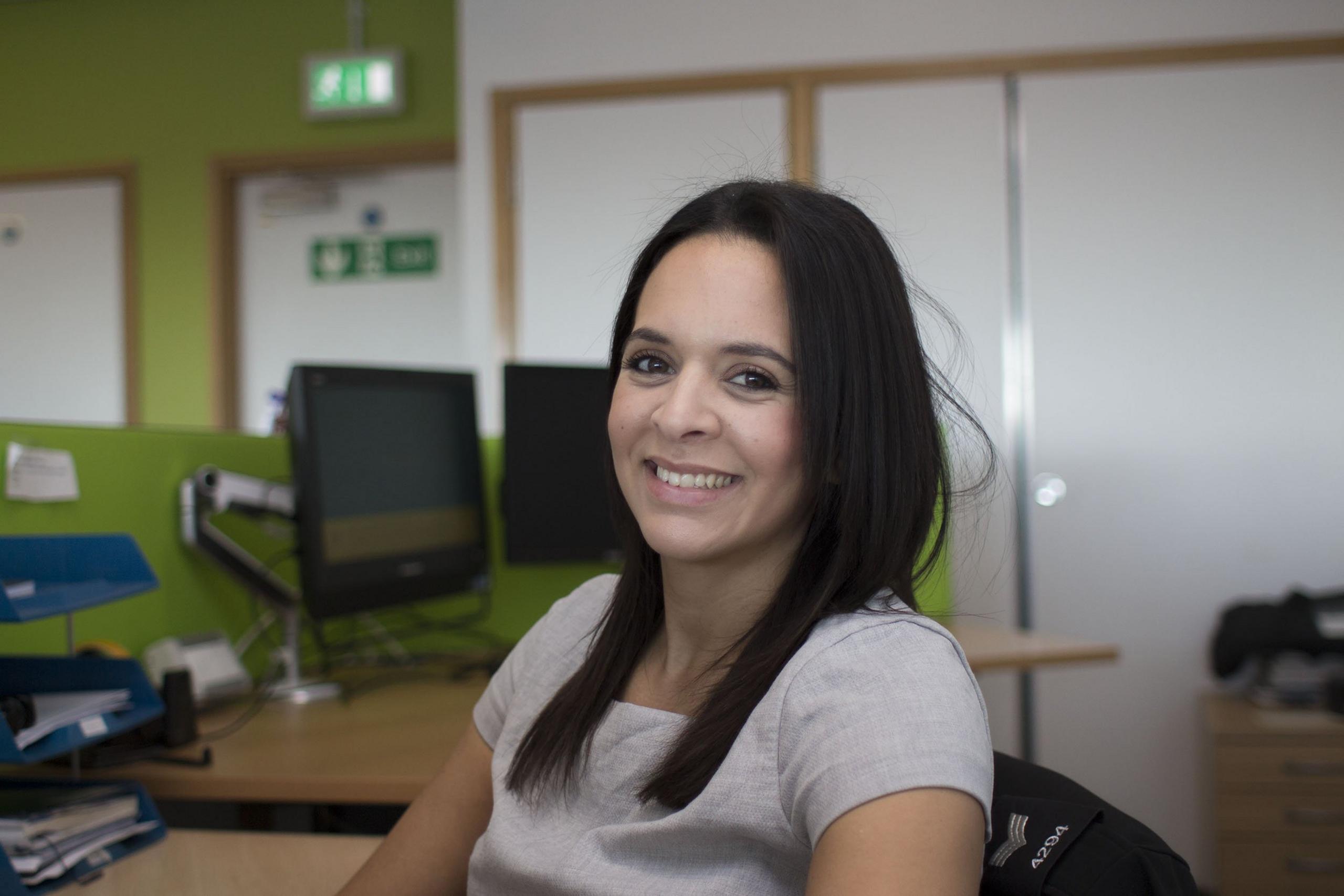
Acting Det Ch Insp Ayesha Giles joined Avon and Somerset Police in 2004
The police force that dealt with the toppling of a statue of a slave trader during a Black Lives Matter protest in the summer has been encouraging its officers of colour to build networks to help them get into the senior ranks.
The bespoke leadership programme at Avon and Somerset is one of the ways the force has been aiming to be the "most diverse" in England.
As well as networking, the course sets out to remove "psychological barriers" and build participants' confidence in applying for roles.
Insp Deepak Kenth said: "There are white colleagues of mine who have always got this help throughout their careers.
"They always have these networks, whereas we haven't. Now there is something, we shouldn't be made to feel guilty about it.
"We're not getting any special assistance we are just getting something which should have been the case years and years ago."
The 38-year-old said the network had made him and others "feel less alone" and overcome "self-doubt".
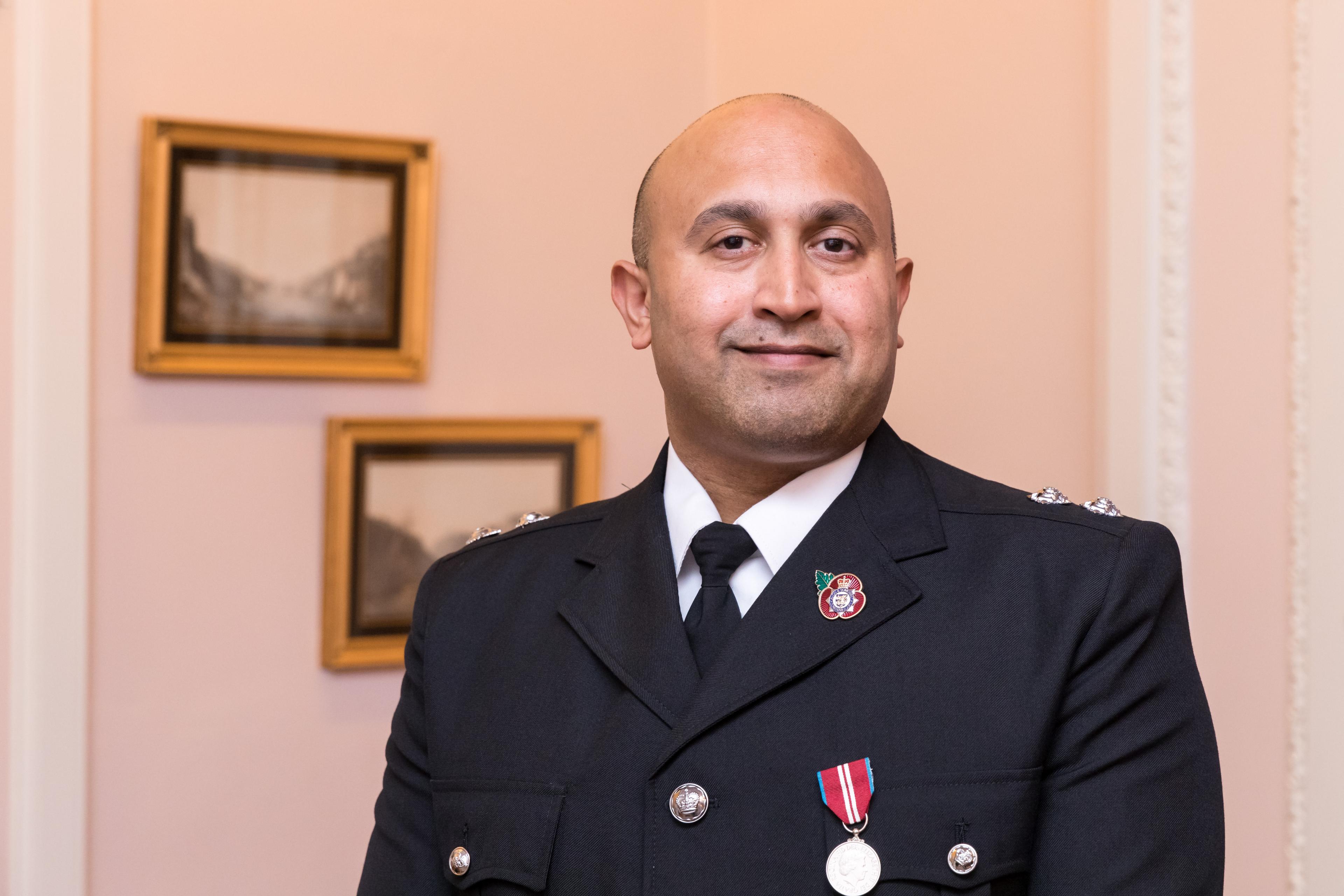
Insp Kenth was the first ever Asian firearms officer in Hampshire in 2005
In 2005, Insp Kenth became the first ever Asian firearms officer in Hampshire's police force.
He is now working towards becoming the first Asian superintendent in Bristol, though the three-month course itself does not offer or guarantee a promotion on completion.
According to the latest Home Office statistics, external for police in England and Wales, only 4% of those in inspector ranks or above came from BAME backgrounds, compared with 8% of constables.
Over the past two years in Avon and Somerset, the rate of officers to come from a BAME background has increased from 2.4% to 3.3%, which Assistant Chief Constable Steve Cullen said was "still too low".
While there has been no specific target to be the "most diverse" force, this overall goal set by Chief Constable Andy Marsh has been attracting more BAME officers.
"The environment breeds success and support and that push which I never got in Hampshire," added Insp Kenth.
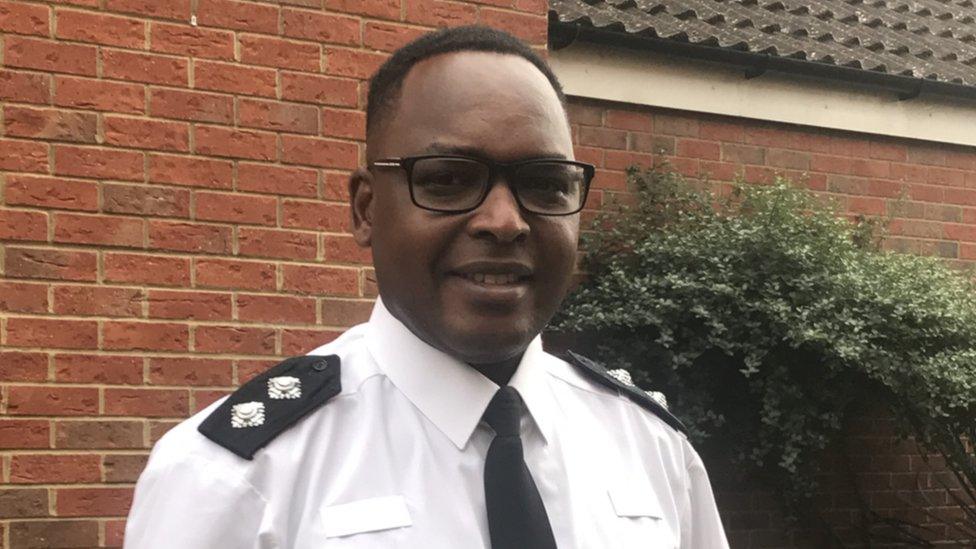
Insp Ronnie Lungu says there is a "real ambition" to get more BAME officers to rise through the ranks
Insp Ronnie Lungu, 46, also transferred to Avon and Somerset upon promotion, in his case from Wiltshire.
"Avon and Somerset has got the ambition of being the most inclusive organisation in the country and I want to be front and centre of that, because the ambition is real," said Insp Lungu.
The leadership programme took a year to set up and began in September after a summer that saw the death of George Floyd in the US sparking worldwide protests.
As part of the Black Lives Matter protests, in Bristol, the statue of prominent slave trader Edward Colston was toppled and pushed into the harbour in June.
Insp Kenth, who joined the police in 2002, said he had "felt the pressure" of being an Asian man "getting looks", especially after the 9/11 and 7/7 terror attacks.
"With Black Lives Matter, I understand what people on the whole majority were protesting about because I've lived that and I've experienced that and I see it," he said.
"But the same time I've been a police officer for 18 years so you are divided and you know not everything is the police's fault. It's a societal issue."
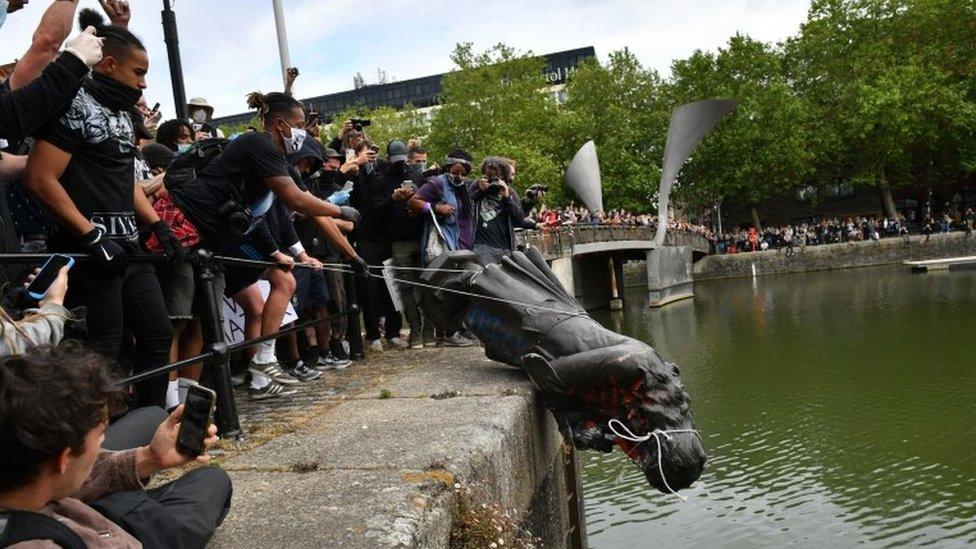
The statue of Edward Colston was pushed into the harbour after being toppled by protesters
He said the statue was a "divisive issue" but that he had experienced policing for local derby football matches or moments of disorder where damage was caused, and police were so heavily outnumbered "that the best we could do was record what was happening" and "it was no different to those events".
"But it was made to look different because of what the statue represented," he added.
"Some people said the police have favoured the left or other people said they are coming down hard.
"It wasn't a race issue, it was criminal damage, and the police did what they had to - keep the peace."
Since then, police in the UK have also been criticised for how forces treated diverse communities but also their treatment of officers of colour.
While officers on the programme are intent on moving up the ranks, being an officer of colour has been felt more keenly.
Insp Lungu said: "You feel like you're caught between two families - that's been a challenge."
But he said he and other officers also knew "that if things have to change they've got to be part of that organisation".
Speaking of the George Floyd case and the widely-seen footage showing a white police officer kneeling on his neck, he said: "It was challenging because, you know, I could relate to that - it could be me, it could be my relative, it could be a member of my family.
"It brought a lot of emotions, it brought anger and it brought shame because I'm a police officer.
"I remember my son asking me the question, 'why would you work for an organisation like that?'
"I had to explain to him that yes there are situations, they do happen, however the organisation I work for doesn't reflect that.
"Therefore I need to be there to ensure that we continue being as professional as we can be and make that change."
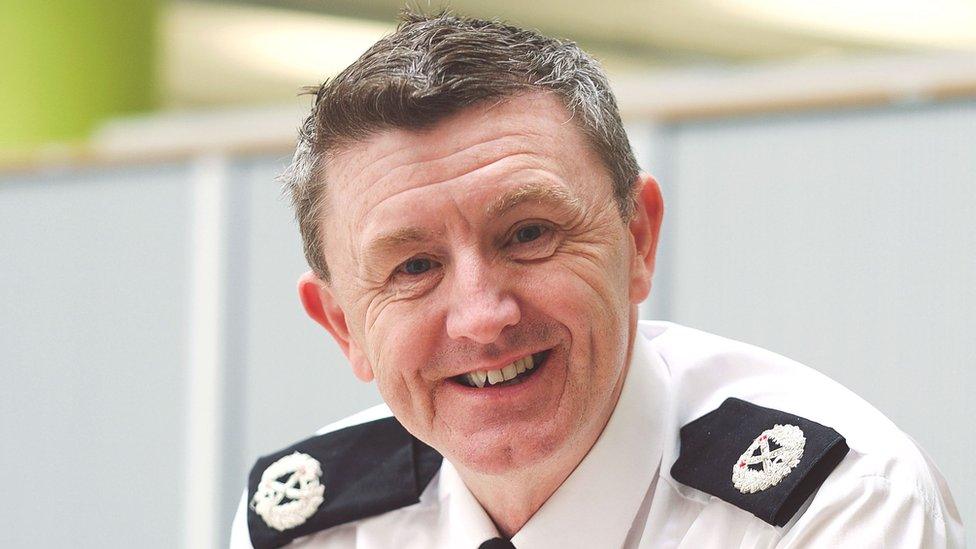
Steve Cullen said Avon and Somerset aimed to be the "most diverse" police force in the UK
Acting Det Ch Insp Ayesha Giles, 38, joined the force in 2004 after graduating with a criminology degree.
"Being a police officer, it's really hard to watch when you see George Floyd. I personally can't watch that video.
"When you get the sweeping statement that all police officers are the same, the already difficult job that we have to try and get local communities to trust us is so much harder because of things other people have done."
Although Acting Det Ch Insp Giles said she had never experienced any overt racism growing up in south Bristol, she has gained insight into other people's experience of it.
"When they've encountered racism at such an early age, it's really impacted their confidence and then they believe you can't do certain things because you're not white."
She said she wanted to support other officers, especially in the "current climate".
"It's about making myself more visible and giving myself the skills and the tool kit so I can actually do something to make a difference to somebody else."
Her ambition, she said, was to secure her promotion and long-term the aim was to think "two ranks ahead".
"It's about building your network of influential people who can make a difference and make a difference to the force," she said.
- Published10 June 2020
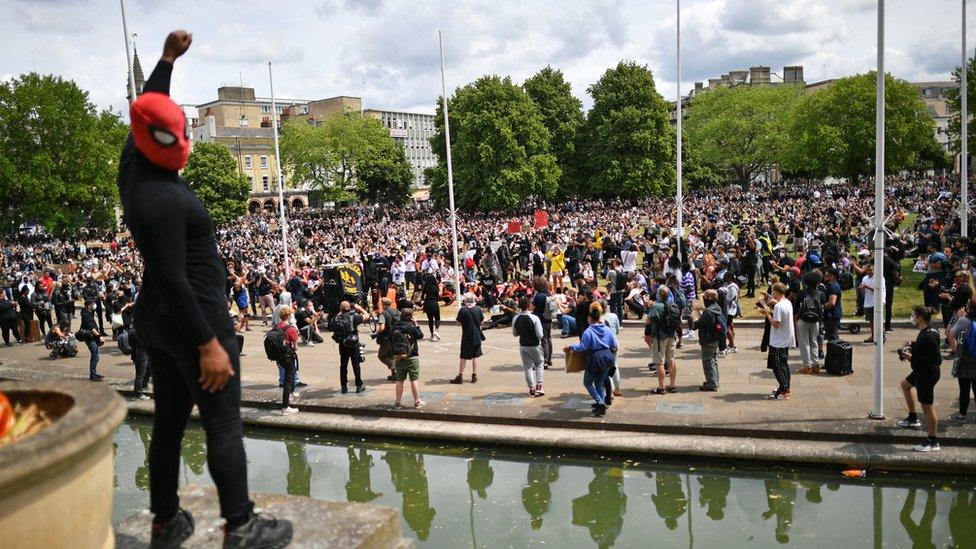
- Published10 June 2020
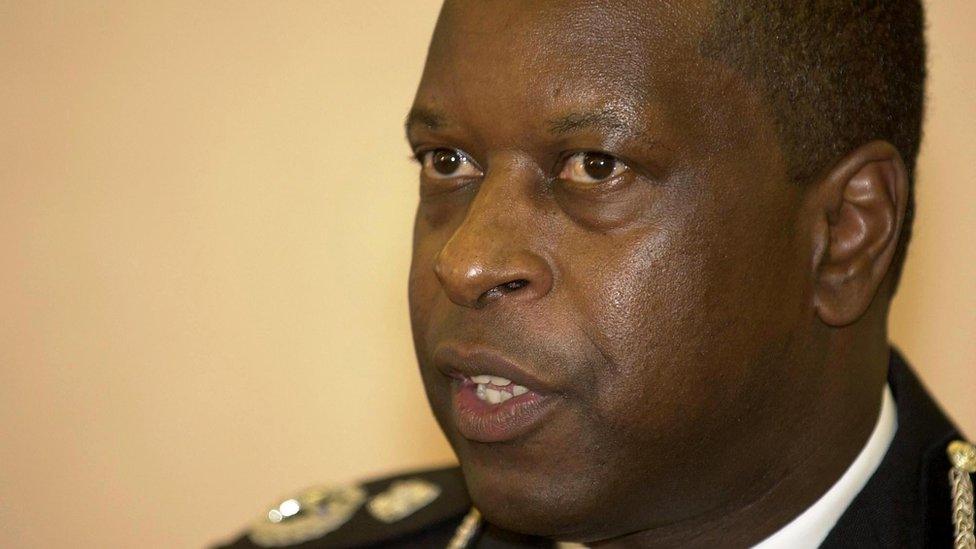
- Published19 April 2019
